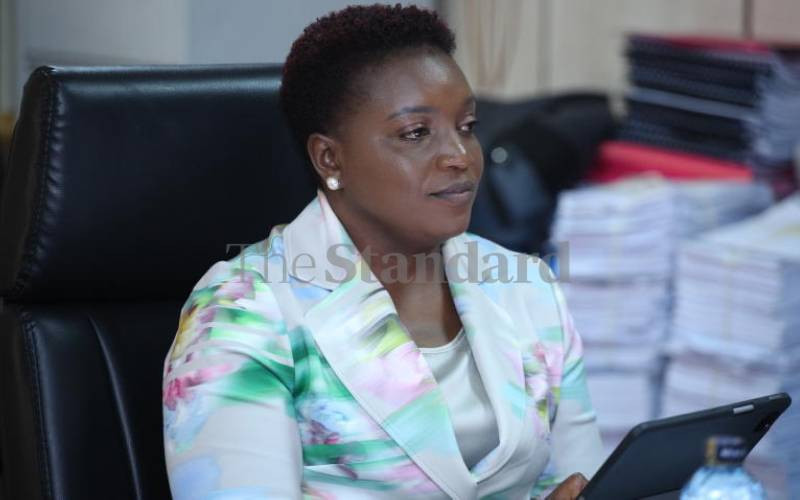Kenya: Two proposed multi-billion shilling tourist hotels have been put off after a community of more than 3,000 families lodged a petition at the High Court in Meru over a disputed 12km stretch of Mt Kenya Forest in Tharaka Nithi County.
The Aturiri Bururi ma Chuka Trust, which has 3,200 members, claims the two hotels are earmarked for a stretch of forest land in Chuka Igambangombe and Maara constituencies where they were planning to put up similar projects.
The trust also acquired court orders barring five loggers licensed by the Kenya Forest Service (KFS) from harvesting exotic trees from Kia Muriuki plantation “without plans of replanting after harvesting.”
The group claimed the loggers had encroached into the natural forest and decimated prized trees, especially the camphor indigenous hardwood variety.
“The merchants were to clear a whole 15.9 hectares (about 40 acres). That is a large area to leave bare. We, as a community, felt that our environmental rights were infringed and threatened. We were violated and had to take urgent actions. The environmental rights are the basis for the right to life,” said the trust’s lawyer Wendy Wanja.
A logger is facing charges of disobeying these orders at the Chuka Magistrate’s Court.
Justice Peter Muchoki Njoroge will hear the case from August 21, and is expected to first tour the disputed forest.
In the suit, Atiriri Bururi Ma Chuka Development Trust (LASODET) named the Attorney General, three cabinet secretaries ( Energy and Natural resources; Information and Communication; and Lands), the National Land Commission (NLC), and KFS as respondents.
The others are Kenya Wildlife Service (KWS), Tharaka Nithi County Government, Rhino Ark, the Nyayo Tea Zones Development Corporation and National Environmental Management Authority (Nema) as respondents.
The trust claimed the bodies supposed to conserve the forest have contributed greatly to it’s degradation. They also accused the county government of seeking to disposes them and give the land to two proposed eco-tourism sites - Kiangodu Guest House and Tungu/Chungu River Lodge.
“The proposed projects are developments that the Chuka community and particularly the petitioner’s are watching with a sense of uncertainty and suspicion. The projects affect them all yet remain shrouded in mystery, including the failure to provide public documentation or carry out consultative meetings with the affected communities,” the say in their suit papers.
The petitioners lay absolute claim over a section between the first baseline and the second baseline of Chuka Forest, an area covering 12 kilometres from the current gazetted boundary inwards.
The community generally refers to the area as “Magundu ma Chuka” or simply as “Magundu”, which literally means fallow farmland.
The trust chairman Ngai M’Utuoboro says the Chuka community moved downstream from the original forest boundary in the 1880s to escape vicious tribal warfare and rustling attacks by their cousins from three directions – the Kikuyu of Kirinyaga in the South West, the Embu in South and the Imentis from the North “These raids would end with the killing of our warriors and men and the abduction of women and children,” says M’Utuoboro. “Our numbers badly depleted. The elders decided that moving downstream from the immediate vicinity of Mt Kenya Forest was the only solution to our total annihilation.”
Stay informed. Subscribe to our newsletter
The colonial government would later allow the community limited cultivation in the forest, save for the Mau Mau emergency period (1952-1960) when the area would be declared a ‘special zone.’
The Kenyatta Government would later extend a similar olive branch, but the community completely lost use of the forest land in 1990, when the Government ended the shamba system for exotic forest management in public forests.
 The Standard Group Plc is a
multi-media organization with investments in media platforms spanning newspaper
print operations, television, radio broadcasting, digital and online services. The
Standard Group is recognized as a leading multi-media house in Kenya with a key
influence in matters of national and international interest.
The Standard Group Plc is a
multi-media organization with investments in media platforms spanning newspaper
print operations, television, radio broadcasting, digital and online services. The
Standard Group is recognized as a leading multi-media house in Kenya with a key
influence in matters of national and international interest.
 The Standard Group Plc is a
multi-media organization with investments in media platforms spanning newspaper
print operations, television, radio broadcasting, digital and online services. The
Standard Group is recognized as a leading multi-media house in Kenya with a key
influence in matters of national and international interest.
The Standard Group Plc is a
multi-media organization with investments in media platforms spanning newspaper
print operations, television, radio broadcasting, digital and online services. The
Standard Group is recognized as a leading multi-media house in Kenya with a key
influence in matters of national and international interest.







